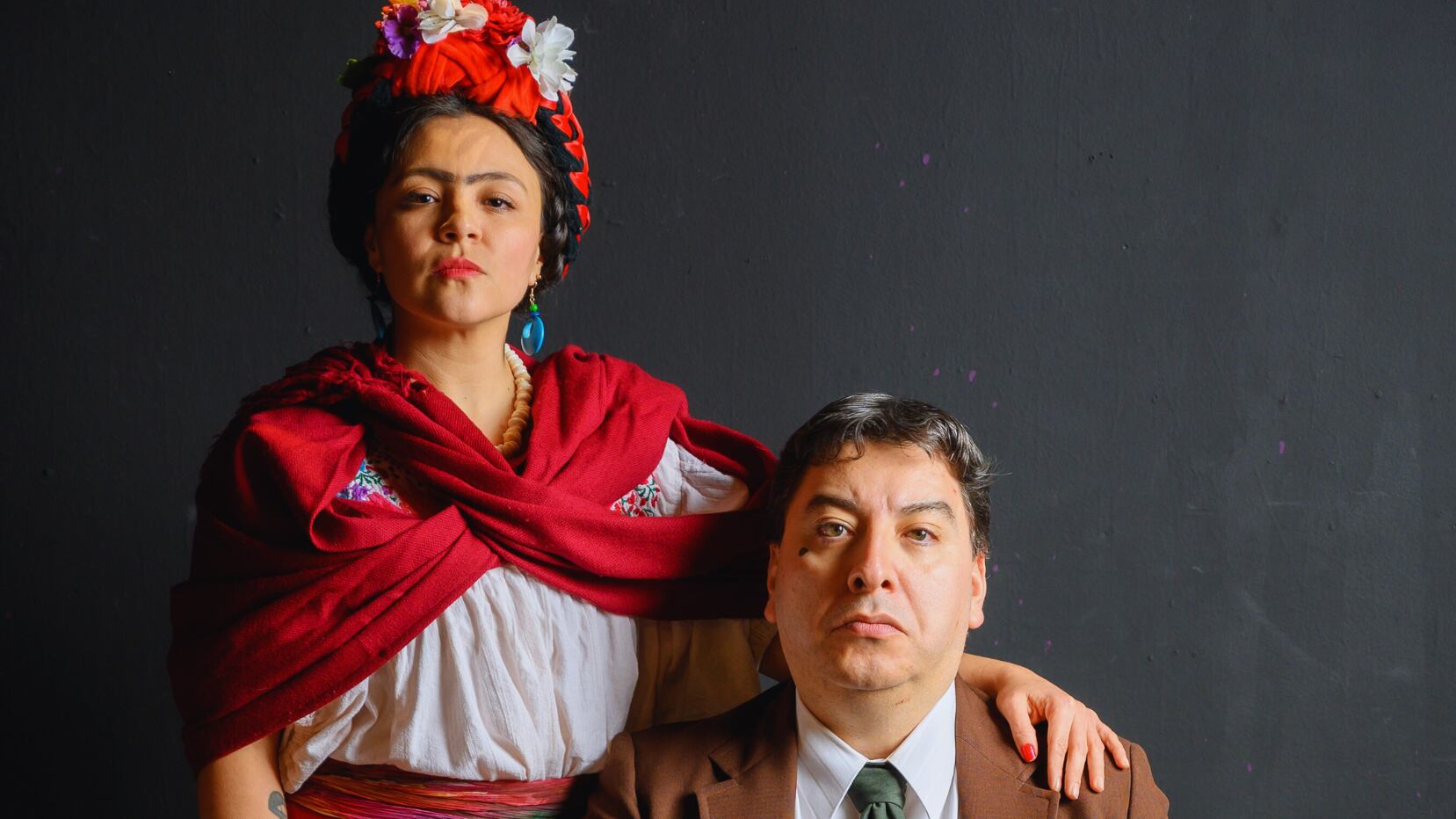Ask one person about Frida Kahlo and they’ll point you toward the myriad kitschy trinkets and souvenir items—everything from tote bags to keychains to socks—brandishing the artist’s “don’t fuck with me” stare and her signature monobrow. Ask another person about Kahlo and they’ll tell you she was a feminist and queer icon, a bold woman whose work unabashedly confronted unrequited love, violence, abortions and disability. Ask still another person about her and they’ll tell you she was a culture vulture who profited from her use of Indigenous Mexican dresses and imagery in her life and in her work. Keep asking and, well, you get the idea.
More than 70 years after her death, Kahlo’s art is many things to many people, open to criticism and praise alike. Her image is used as the monolithic portrait of “the Mexican artist,” plastered across culture like Marilyn Monroe to the point that many people often lose sight of the fact that they know little about the person who she really was without her emblematic personal style.
So if you ask Dañel Malán-González, executive director at Teatro Milagro, about Frida Kahlo, she might have a different perspective than most, drawing from a long-held curiosity about the artist’s tragic background. In 2003, she wrote Frida, un Retablo, a Kahlo biographical play opening Friday, Feb. 7, at Milagro.
“I think it’s important to really understand who [Kahlo] was, where she came from, the community she grew up in,” Malán-González says. “If she were alive today, she would be much different than the Frida that we’ve learned about in history.”
Frida, un Retablo has been revised slightly over its runs in 2007 and 2013. But the beats of the story have remained the same, focusing on the moments in Kahlo’s life that shaped her: the near-fatal bus accident that caused her lifelong pain, her tumultuous relationship with Mexican muralist and painter Diego Rivera, her abortions and miscarriages, and her introduction to communism.
Malán-González has changed with her play. She says both a diagnosis of juvenile arthritis and a car accident in 2009, which led to a spinal injury, put into perspective this idea of “being broken.” It’s also led to the inclusion of workshops and events focused on disability-informed self-portraiture, which Reveca Torres—an artist and executive director of Backbones, an organization that seeks to help people with spinal cord injuries and disabilities—will lead, coinciding with some performances.
“I see that connection about how art can really uplift you and help you in your time of need. It’s always been a driving force for me,” Malán-González says. “So this play is a biography of Frida, but it has my kind of personal fingerprints all over it.”
The biggest changes with this 2025 iteration are the choreography and the use of Spanish throughout, the latter of which excites Malán-González most. Performing in Spanish attempts to create a more authentic portrayal of Kahlo’s life, with the only English coming from English-speaking characters or in instances where Kahlo breaks the fourth wall. No te preocupes, non-Spanish speakers. There will be subtitles projected on the set and presented on TV screens.
Malán-González sees this staging of Frida, un Retablo as her “last hurrah” before assuming the bureaucratic duties like fundraising that she inherited last summer as Milagro’s new executive director. But her play’s latest version is noteworthy as the directorial debut of Mia Torres. Torres’ background is in theater performance and English literature, which she says gives her an analytical approach to performances however she works on them, whether that’s through set and costume design, acting or directing.
For Frida, un Retablo, Torres has been digging deep through various biographies in order to learn about Kahlo, “a character who is often caricatured,” she says. Torres says Kahlo was an artist constantly in search of her own self-identity, and that one of her more famous paintings, The Two Fridas, portrays the artist’s numerous personal identity struggles between biracial identities, her public and private personae, and the versions of herself that she loved and hated. For Torres, who also identifies with Kahlo’s struggles, it’s this complex convergence of self-identity and public perception that she’s hoping to tap into with her cast and crew.
“She’s the most complicated historical figure I’ve ever learned about,” Torres says. “With her, she tried so hard to tell us who she was, and yet we’re struggling to grapple with it.”
This is why the performance features three versions of Kahlo—Young Frida (Ximena Morales), Old Frida (Christine Kruz) and the Spirit of Frida (Melissa Bibliowicz)—all of whom interact with the world around them, fall in and out of love with Rivera (Enrique Andrade), and sometimes directly confront the audience, asking us what we know about her, asking if we’ve truly seen her or if we’ve simply stared at her into oblivion.
“I think the whole work of the play is to tell the true story of Frida Kahlo [because] knowing Frida’s story absolutely changes the way you see her art,” Torres says. “We’re framing her story as a way into the art, it’s a gateway to understanding it.”
SEE IT: Frida, un Retablo at Teatro Milagro, 525 SE Stark St., 503-236-7253, milagro.org. 7:30 pm preview Thursday, Feb. 6. 7:30 pm Friday and Saturday, 2 pm Sunday, Feb. 7–22. $30.
